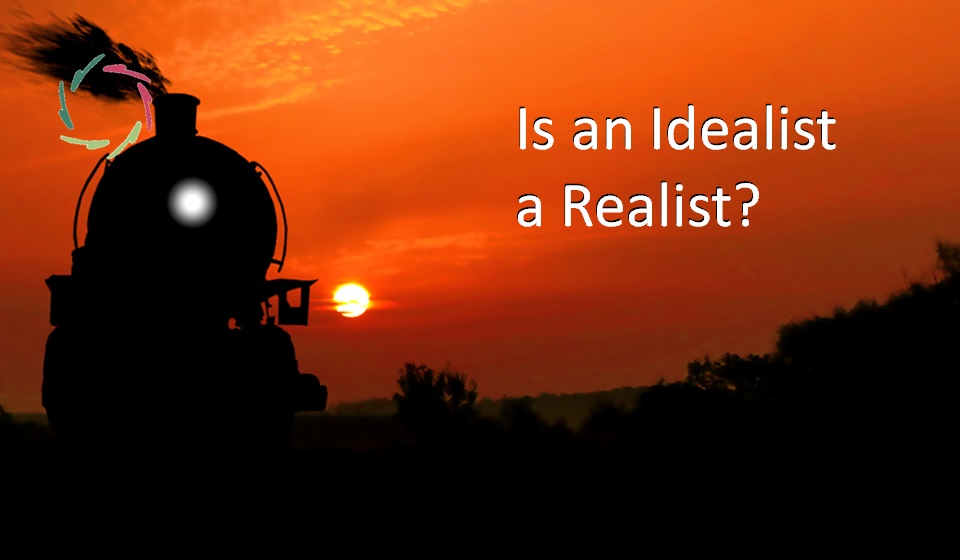Is an Idealist a Realist?

Of course not — this is, not straightforwardly. However, a realist needs to be an idealist. There is no genuine reality in anything human-related without ideals.
Without ideals, there is only surreal cynicism.
One can subtract ideals from reality.
A cynical person, as mentioned, is inclined to do so with the argument that “this is the real world, so get real.” Then, he goes on creating precisely such a world for himself and others. OK. Do you also see what doesn’t fit in this?
A ‘realist’ may look at an ‘idealist’ as a softie who doesn’t want to acknowledge the hardness of the real world. I see in this the realist’s lack of gentle strengtht. Where did this come from?
For humans, there is no world (until now) except one created by humans — in any direction.
We make or break ideals.
It’s our choice, and thus, we create reality. If it comes from the inside out, then that is the reality nothing else can tip on, formed by aligning one’s deeper self with one’s actions and thoughts.
So, let’s do the best we can in this regard.
This shows the immense importance of choosing one’s ideals correctly.
One is drawn to them. One’s reality is created by them — even when one’s cynical ideal is not to have ideals.
This is where it can turn badly wrong, not in having ideals but in having destructive ones. In the worst case, these wrong ones turn into inhumane ideologies. In this case, we need a dose of ‘realism’ to counter them.
Even so, to lose all one’s ideals is no worthwhile solution.
In the same act, one loses motivation and meaningfulness, a sense of purpose and vitality — ready for existential malaise or burnout (of which cynicism is a core symptom).
People live on bread and ideals. The former gives them life. The latter makes them alive. Therefore, we shouldn’t discard ideals. We should value them properly as we should value the transformative power of selecting and pursuing the right ideals.
Is an idealist a realist?
Absolutely, since everything we do is tainted by our experiencing. Everything we foresee is tainted by our foreseeing. Everything we remember is tainted by our remembering. Everything human-related is made by our making it so.
One might conclude from this that we live in a fairytale. One might also conclude that this fairytale is our reality. Our being itself lies inside.
So, nothing really real, nothing really meaningful?
If you ask yourself this question at this point, then please reread this blog. It’s our ideals that make our world real. Nothing makes sense without them.
Taking this into account from the AURELIS framework, we can further explore how the cultivation of healthy, constructive ideals can promote well-being and prevent mental health issues.


